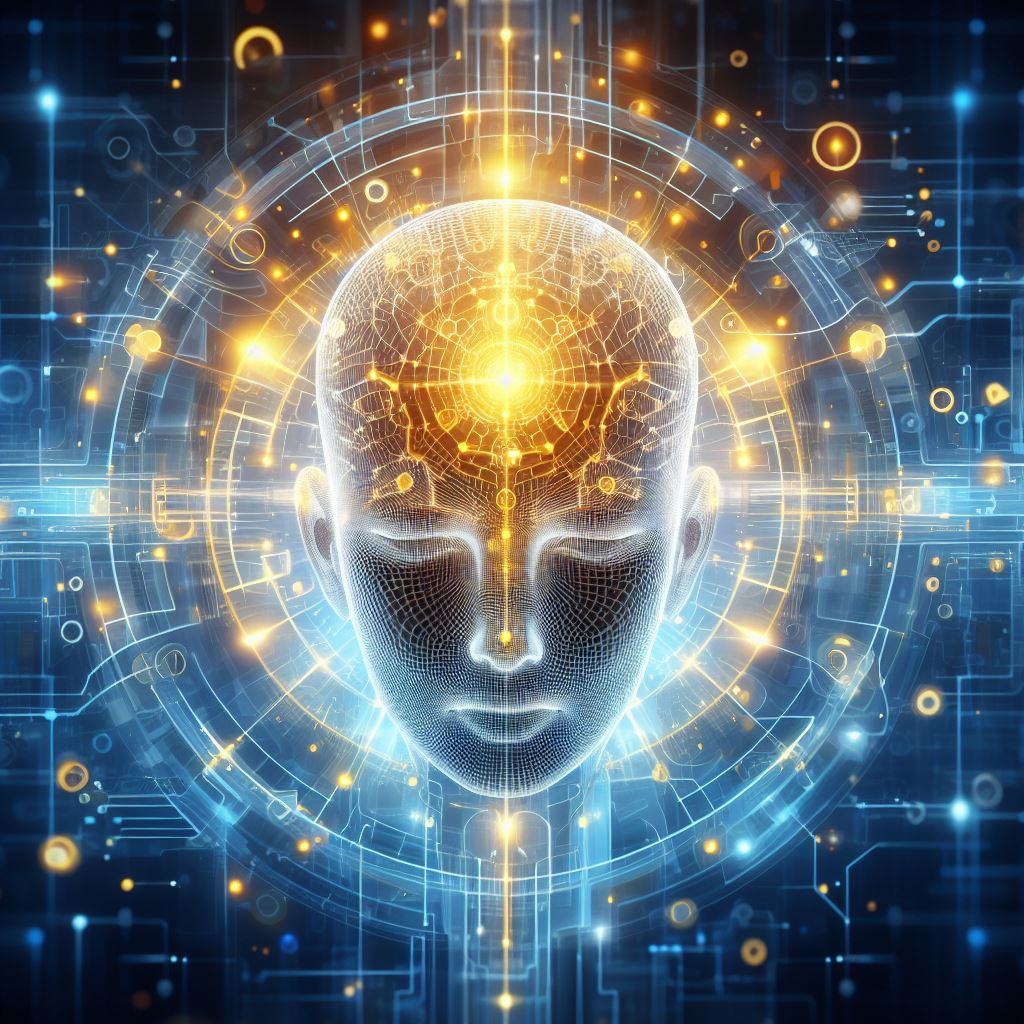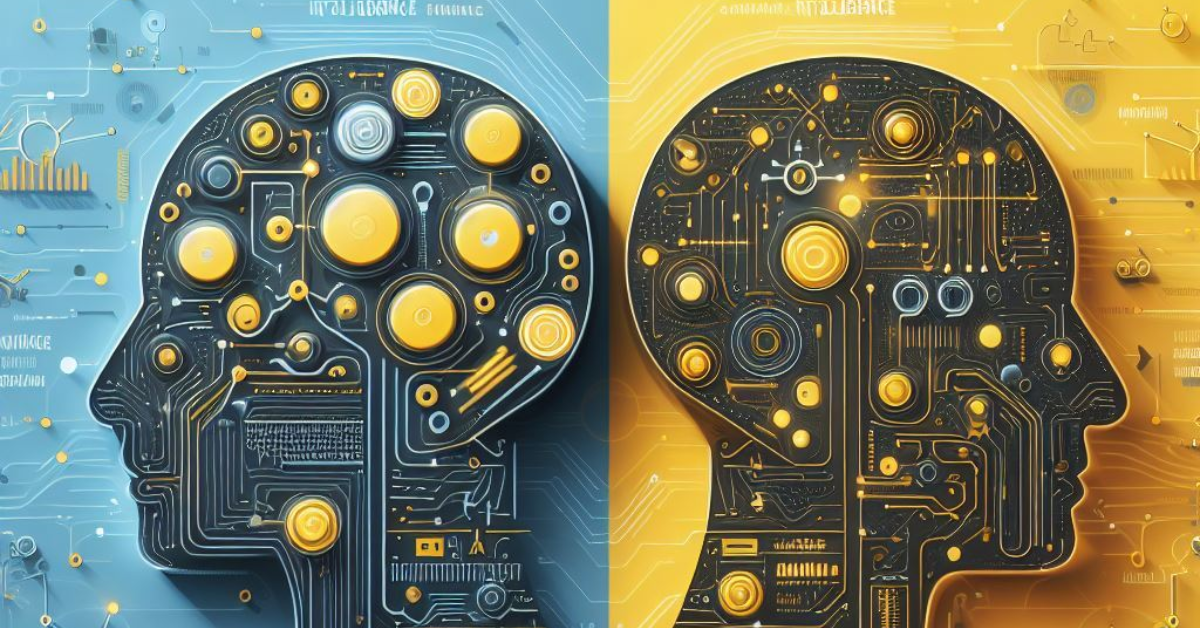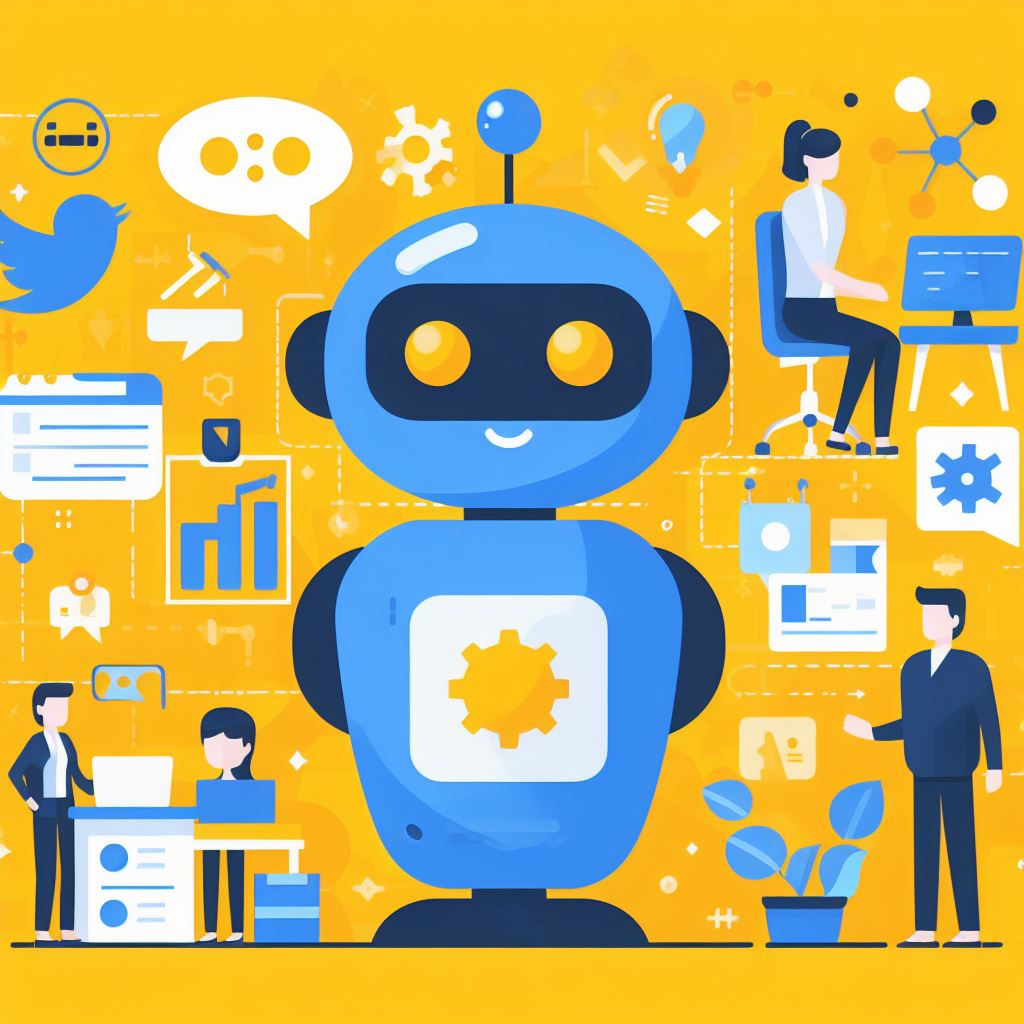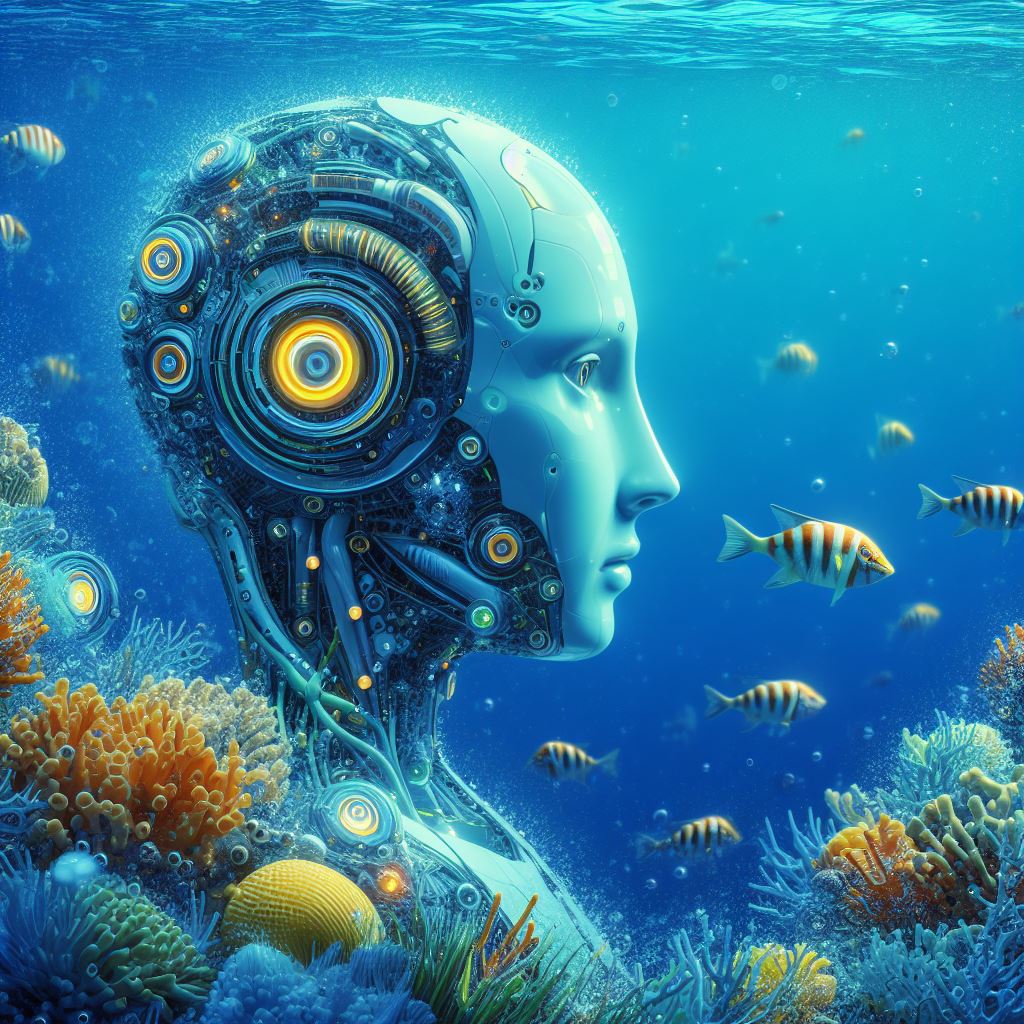AI in Quantum Computing: Advancing Quantum Tech with AI
October 25, 2023 | by insighttechdaily.com

Table of Contents
Enhancing Quantum Computing: Unleashing the Power of AI
Artificial Intelligence (AI) has emerged as a powerful tool in enhancing quantum computing capabilities. By leveraging the vast computational power and learning abilities of AI systems, quantum algorithms can be optimized and accelerated. The synergy between AI and quantum computing holds promising potential for revolutionizing various industries, from drug discovery and optimization problems to financial modeling and supply chain logistics.
A key advantage of AI in quantum computing is its ability to mitigate errors and enhance the stability of quantum systems. Quantum computers are extremely sensitive to external interference and noise, leading to errors in computations. AI algorithms can help identify and correct these errors, improving the reliability and accuracy of quantum computing processes. Moreover, AI can enable advanced error correction techniques that would otherwise be challenging to implement in traditional error-prone quantum systems. The combination of AI and quantum computing has the potential to unlock new frontiers in technology and pave the way for groundbreaking discoveries and innovations.
Unraveling the Synergies: AI and Quantum Computing
Artificial intelligence (AI) and quantum computing have emerged as two cutting-edge technologies that possess immense potential individually. However, their true power lies in their synergy, as they share a complementary relationship. AI, with its ability to process large amounts of data and make intelligent decisions, can greatly enhance the capabilities of quantum computing in various ways.
One area where this synergy is evident is in the field of quantum algorithms. Quantum algorithms are designed to solve complex problems that are beyond the reach of classical computers. However, designing these algorithms requires a deep understanding of quantum mechanics and mathematics. This is where AI can play a crucial role by leveraging its ability to learn from data and find patterns. By applying AI techniques, researchers can develop more efficient and effective quantum algorithms, accelerating the progress of quantum computing and broadening its applicability.
Revolutionizing Quantum Technology: AI’s Impact on Quantum Computing
Quantum computing holds immense potential for revolutionizing technology as we know it, but it also faces significant challenges. Enter artificial intelligence (AI), a transformative force that is assisting in the advancement of quantum computing. AI’s impact on quantum computing is undeniable, as it unravels new synergies and enhances the capabilities of this cutting-edge technology.
One area where AI plays a critical role is in expediting quantum algorithms. Traditional algorithms can be time-consuming and resource-intensive, hindering the progress of quantum computing. However, by harnessing AI, researchers can develop intelligent algorithms that optimize computation and reduce the time required for complex calculations. This fusion of AI and quantum computing enables scientists to solve problems that were previously considered intractable, paving the way for advancements in various fields such as cryptography, optimization, and material science. AI-driven innovations in quantum computing are driving the capabilities of this technology to new heights, opening doors to previously unexplored possibilities.
Expediting Quantum Algorithms: The Role of AI
Quantum computing holds immense promise in revolutionizing the world of algorithms by harnessing the power of quantum mechanics. However, developing efficient quantum algorithms remains a formidable challenge. This is where artificial intelligence (AI) steps in to play a crucial role. AI techniques have the potential to expedite the development and optimization of quantum algorithms, pushing the boundaries of what is currently possible in the quantum computing realm.
By leveraging AI, researchers can explore vast solution spaces and discover optimal quantum algorithms in a much shorter time than traditional methods. Machine learning algorithms can be employed to analyze the behavior and performance of quantum systems, enabling the identification of patterns and correlations that would be difficult to perceive using human intuition alone. Furthermore, AI can aid in identifying and eliminating redundancies or bottlenecks in quantum algorithms, leading to improved efficiency and faster execution times. Overall, the incorporation of AI techniques has the potential to greatly accelerate the pace of progress in developing quantum algorithms, bringing us closer to realizing the full potential of quantum computing.
Unleashing Quantum Machine Learning: AI-driven Innovations
Quantum machine learning has emerged as a promising area where the power of artificial intelligence (AI) can be harnessed to enhance quantum computations. This field combines the principles of quantum computing with machine learning techniques to enable more efficient and accurate data analysis. By leveraging the unique properties of quantum systems, such as superposition and entanglement, AI-driven innovations in quantum machine learning can unlock new possibilities for solving complex problems and optimizing computations.
One of the key advantages of quantum machine learning is its ability to handle large-scale datasets more effectively. Traditional machine learning algorithms often struggle with the exponential growth of data, leading to significant computational bottlenecks. However, with the introduction of quantum algorithms, such as quantum support vector machines and quantum clustering, the computational power required for processing massive datasets can be significantly reduced.
This allows for faster and more accurate analysis, enabling researchers and scientists to uncover hidden patterns and make informed decisions based on the insights generated from quantum machine learning models. As quantum computers continue to advance and improve, the impact of AI-driven innovations in quantum machine learning is expected to grow exponentially, opening up new frontiers in various industries, including healthcare, finance, and telecommunications.
Mitigating Quantum Errors: Leveraging AI in Quantum Computing
Quantum computing holds immense potential for solving complex problems that are currently beyond the capabilities of classical computers. However, quantum systems are extremely sensitive to external interference, making them susceptible to errors. These errors arise from various sources, including quantum decoherence, imperfect control operations, and noise introduced during the measurement process. Mitigating these errors is paramount to harnessing the full power of quantum computing.
Artificial intelligence (AI) emerges as a promising approach to address quantum errors. By leveraging sophisticated algorithms and machine learning techniques, AI can analyze and understand the error patterns in quantum systems. Through this analysis, AI algorithms can devise error-correction strategies that minimize the impact of errors on quantum computations. The ability of AI to adapt and learn from data makes it a valuable tool for identifying and correcting quantum errors in real-time. This synergy between AI and quantum computing holds the key to improving the reliability and effectiveness of quantum computers.
Breaking Barriers: AI’s Role in Quantum Simulation
Quantum simulation is a powerful tool that enables researchers to explore and understand the behavior of complex quantum systems. However, it is often limited by the exponential growth in computational resources required as the system size increases. This is where artificial intelligence (AI) steps in, offering a promising solution to break through these barriers and revolutionize quantum simulation.
By leveraging AI techniques, researchers can develop innovative algorithms that optimize the simulation process, allowing for more efficient and accurate calculations. AI algorithms can intelligently adapt and learn from previous simulations, enabling researchers to make better predictions and gain valuable insights into the quantum behavior of materials, molecules, and even the universe at large. With AI’s ability to analyze massive amounts of data and identify patterns, it has the potential to uncover new phenomena and unlock breakthroughs in our understanding of quantum physics. The combination of AI and quantum simulation holds great promise for accelerating scientific discovery and driving advancements in various fields, ranging from drug discovery to materials science and beyond.
Optimizing Quantum Circuits: Harnessing the Potential of AI
Quantum computing holds great promise for solving complex problems that are currently beyond the capabilities of classical computers. However, optimizing quantum circuits to improve their efficiency and performance remains a significant challenge. This is where the power of artificial intelligence (AI) comes into play. By harnessing the potential of AI techniques, researchers and engineers are finding innovative ways to optimize quantum circuits and make quantum computing more accessible and practical.
AI can assist in several key areas of optimizing quantum circuits. One of the primary challenges is reducing the number of gates required in a circuit while maintaining its functionality. Through machine learning algorithms, AI can analyze large sets of data and identify patterns that can lead to more streamlined and efficient circuit designs. This not only saves computational resources but also reduces the likelihood of errors in quantum computations. Additionally, AI can aid in the decision-making process by suggesting the most optimal sequence of operations, further enhancing the overall performance of quantum circuits. By leveraging AI’s analytical capabilities, researchers are unlocking the potential of quantum computing and paving the way for its widespread adoption in various fields.
Quantum Data Analysis: Empowering Insights with AI Techniques
In the realm of quantum computing, data analysis plays a vital role in extracting valuable insights. With the integration of artificial intelligence (AI) techniques, the potential for enhanced analysis and understanding of quantum data is boundless. AI empowers researchers and scientists to navigate the intricate complexities of quantum information, paving the way for groundbreaking discoveries and advancements in quantum technology.
By leveraging AI techniques in quantum data analysis, researchers are able to decipher patterns and correlations that would otherwise remain hidden. The immense computational power of quantum systems, coupled with the intelligent algorithms of AI, allows for swift and accurate analysis of vast amounts of complex data. This enables scientists to uncover critical insights, leading to a deeper understanding of fundamental quantum phenomena and facilitating the development of novel applications in areas such as cryptography, optimization, and machine learning. The fusion of AI and quantum data analysis thus presents a gateway to unlock the full potential of quantum technology and revolutionize various industries.
Unveiling the Future: AI’s Transformative Potential in Quantum Technology
Quantum technology, with its promise of exponentially faster computation, has been the subject of much excitement and speculation in recent years. However, harnessing its full potential has been hindered by the presence of errors that can occur during quantum computation. This is where the transformative potential of artificial intelligence (AI) comes into play. By leveraging AI techniques, researchers have been able to develop algorithms and methods that not only mitigate these errors but also optimize the performance of quantum systems.
One area where AI has shown significant promise is in quantum error correction. In traditional computing, errors can be easily detected and corrected. However, in the quantum realm, errors are much more complex due to the fragile nature of qubits – the basic unit of quantum information. With the ability to analyze vast amounts of data and patterns, AI has helped identify and correct these errors, making quantum computations more reliable and accurate. The integration of AI and quantum technology is thus poised to revolutionize the field by unlocking new possibilities in computation, communication, and data analysis.
FAQs
What is the potential impact of AI on quantum technology?
AI has the potential to revolutionize quantum technology by enhancing quantum computing, expediting quantum algorithms, mitigating quantum errors, breaking barriers in quantum simulation, optimizing quantum circuits, and empowering quantum data analysis.
How can AI enhance quantum computing?
AI can unleash the power of quantum computing by leveraging its capabilities in data analysis, optimization, and machine learning to improve the performance and efficiency of quantum algorithms.
How do AI and quantum computing synergize?
AI and quantum computing have a synergistic relationship, where AI techniques can be used to optimize quantum algorithms, and quantum computing can provide the computational power needed for AI-driven innovations.
What is the role of AI in expediting quantum algorithms?
AI techniques can help speed up the execution of quantum algorithms by optimizing their design and implementation, leading to faster and more accurate results.
How can AI unleash quantum machine learning?
By combining AI and quantum computing, researchers can develop innovative quantum machine learning algorithms that can harness the power of quantum systems to solve complex problems more efficiently.
How can AI mitigate quantum errors in computing?
AI can play a crucial role in mitigating quantum errors by developing error correction techniques and optimizing quantum error correction codes, improving the overall reliability and stability of quantum computing systems.
What barriers can AI break in quantum simulation?
AI can break barriers in quantum simulation by enabling the simulation of larger and more complex quantum systems, allowing researchers to gain deeper insights into quantum phenomena and accelerate scientific discoveries.
How can AI optimize quantum circuits?
AI techniques can optimize the design and implementation of quantum circuits, leading to improvements in circuit efficiency, error rates, and overall performance.
How can AI empower quantum data analysis?
AI techniques can be applied to analyze and interpret quantum data, enabling researchers to extract valuable insights from quantum systems and enhance our understanding of quantum phenomena.
What is the transformative potential of AI in quantum technology?
The transformative potential of AI in quantum technology lies in its ability to enhance quantum computing, expedite quantum algorithms, mitigate quantum errors, break barriers in quantum simulation, optimize quantum circuits, and empower quantum data analysis, ultimately advancing the field of quantum technology.
RELATED POSTS
View all


